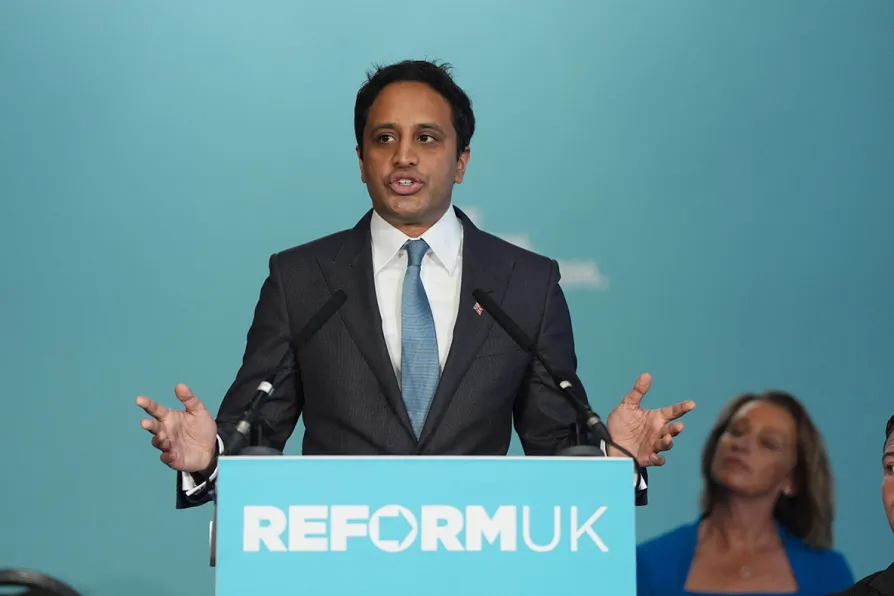
 Reform UK party chairman Zia Yusuf speaks during a press conference in Westminster, London, May 27, 2025
Reform UK party chairman Zia Yusuf speaks during a press conference in Westminster, London, May 27, 2025
REFORM UK was in turmoil today following the sudden resignation of party chairman Zia Yusuf and disappointing results in a Scottish Parliament by-election.
Scottish Labour’s surprise win in the pivotal Hamilton, Larkhall and Stonehouse election came as calls to ban the burka sparked a Reform civil war, with Mr Yusuf branding them “dumb” shortly before abruptly quitting his position.
Tech entrepreneur Nathaniel Fried, who was announced earlier this week as the head of a party team examining spending at Reform-controlled Kent County Council, also quit his job, saying that Mr Yusuf had “got me in,” so it was “appropriate for me to leave with him.”
On Wednesday, newest Reform MP Sarah Pochin asked Sir Keir Starmer during Prime Minister’s Questions whether he would support a burka ban.
The next day, Mr Yusuf said that it had been “dumb for a party to ask the PM if they would do something the party itself wouldn’t do.”
Shortly after that, the donor and businessman announced his resignation as chairman.
In a statement on X, Mr Yusuf, who is a Muslim, said: “Eleven months ago, I became chairman of Reform.
“I’ve worked full-time as a volunteer to take the party from 14 to 30 per cent, quadrupled its membership and delivered historic electoral results.
“I no longer believe working to get a Reform government elected is a good use of my time and hereby resign the office.”
Party leader Nigel Farage said he had had only 10 minutes’ notice that Mr Yusuf was going to resign, adding that he was “genuinely sorry” that his chairman had decided to stand down.
But Reform UK deputy leader Richard Tice insisted that the issue of women wearing burkas should be the subject of a “national debate” as he entered the by-election ballot count on Thursday night.
Speaking to BBC Radio 4’s Today programme today, he added: “I think it is right that we should have a debate about whether or not the burka is appropriate for a nation that’s founded in Christianity, where women are equal citizens and should not be viewed as second-class citizens.”
He claimed to be “pretty concerned” about whether the burka was a “repressive item of clothing.”

Britain faces pressure to suspend arms sales to Israel following international outcry against plans to take over Gaza City













